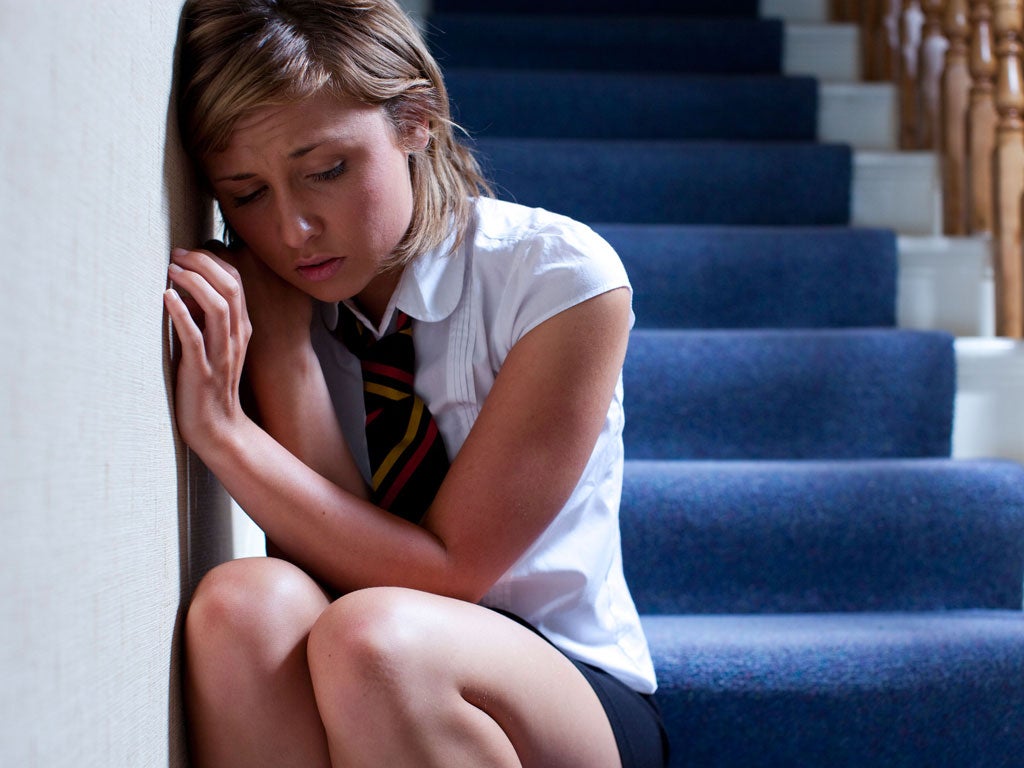Independent Appeal: A ray of hope for thousands of children with nowhere to go
The Children's Society offers runaways a sanctuary where they can learn to rebuild their lives

There is more to Courtney than meets the eye, and it is not all stuff that you would be pleased to discover. She is fresh-faced, pretty, with blue eyes and long blonde hair. But the demure image is shattered when she says, in a matter of fact way, how when her father didn't answer the phone she kicked in the door of the place where he lived.
That was not the start of her troubles. Far from it. She was just 14 when she first ran away from home after "family problems" with her mother's new partner which, she says curtly, she'd rather not talk about.
"I just walked out. I wasn't really thinking," she says, sitting in the runaways rescue project run by the Children's Society, one of the three charities being supported in the 2011 Independent Christmas Appeal. This project is in Birmingham but there are similar ventures all across the country. As many as 300 teenagers run away from home in Britain every day.
"I just walked round the streets and then went to a park where there was a bench with roofing in the playground," she recalls. After one night she went home but a social worker was appointed by the local council to keep an eye on the child.
Not long after she left home permanently and moved in with her father. But after a year she ran from there too. "Me and my dad were arguing a lot," she says. She is a girl of few words. This time she was away for three nights – one in the park, the second in a tent in a schoolfriend's garden until the friend's mother found out, then back to the park. On the fourth day she went back to her father's. "I rang him but he said he was busy. I waited three hours and then I kicked the door in," she says. Then she locked herself in the bedroom and took an overdose of his sleeping tablets.
She was in hospital for a week, after which the social services decided she should be in a children's home. "It was a scary place. The staff didn't listen to you. they just sat in their office doing paperwork, avoiding you."
Before long she had run away again, sleeping on benches near the local hospital. Two classic patterns had been established. Kids who run a way often do so repeatedly, and for longer spells each time. And children in care are far more likely to run away than those living with even one parent.
"About 300 runaways are referred to us here each month," says the Children's Society's Birmingham project worker, Ruth Maguire, "and about three times as many were in care before they left." Between 30 and 45 per cent of all children in care run at some point, a survey for the society suggests – though that is not necessarily a reflection of the quality of local authority as many "looked after" young people have, like Courtney, already established patterns of disturbed behaviour, including running, before they were taken into care.
Two things broke the cycle for Courtney. The first was the Children's Society Birmingham project. The second was placement in a children's home where she had an entirely different experience. "I was given a mentor who was really nice – we're still friends even though I left the home and have my own flat," she says. "She would take me out to have out nails done, or go to a foot spa, or to Alton Towers. It gave me something to look forward to.
"The staff were better too. They ran the place more like a family. We did activities together at Halloween or Christmas and went on outings – though it still wasn't like Tracy Beaker, (from the book and TV series of the same name), where the staff just let her get away with it if she pulls stunts or throws stuff at the staff."
But it did provide her with the boundaries and structure she had lacked. At 16 she got a job in a nursery where she earned an NVQ Level 2 in child care. At 18 she moved into a flat of her own. "Now I'd like to train to be a mentor myself," she says. "I think I understand what kids like me need."
Appeal partners: Who we're supporting
Save the Children
Save the Children works in 120 countries, including the UK. They save children's lives, fight for their rights and help them fulfil their potential. Save the Children's vital work reaches more than 8 million children each year - keeping them alive, getting them into school and protecting them from harm. www.savethechildren.org.uk
The Children's Society
The Children's Society provides vital support to vulnerable children and young people in England, including those who have run away from home. Many have experienced neglect, isolation or abuse, and all they want is a safe and happy home. Their project staff provide essential support to desperate children who have no-one else to turn to.
Rainbow Trust Children's Charity
Rainbow Trust Children's Charity provides emotional and practical support for families who have a child with a life threatening or terminal illness. For families living with a child who is going to die, Rainbow Trust is the support they wished they never had to turn to, but struggle to cope without.
At The Independent we believe that these organisations can make a big difference to changing many children's lives.
CLICK HERE TO DONATE NOW.
Join our commenting forum
Join thought-provoking conversations, follow other Independent readers and see their replies
Comments